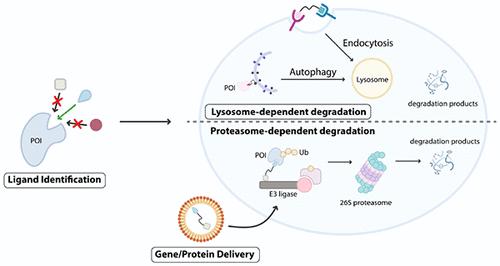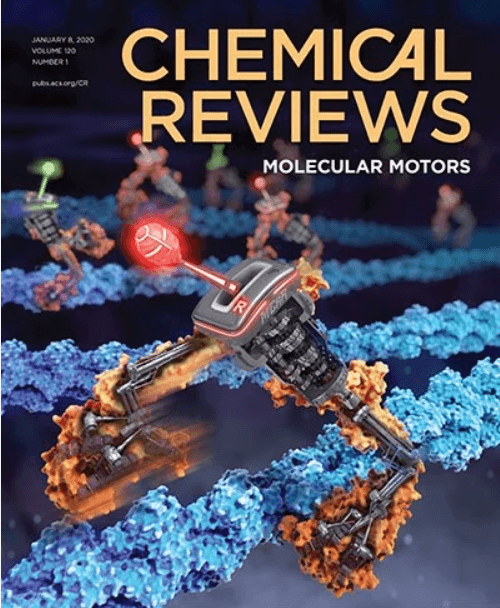基于蛋白质的降解剂:从化学生物学工具到新疗法
IF 55.8
1区 化学
Q1 CHEMISTRY, MULTIDISCIPLINARY
引用次数: 0
摘要
由于降解分子有选择性地调节疾病相关蛋白的能力,靶向蛋白降解(TPD)这一新兴领域可能会给生物医学带来革命性的变化。TPD广泛应用的一个关键限制是它依赖于小分子配体来靶向感兴趣的蛋白质。这使得非结构化蛋白质或那些缺乏用于小分子结合的明确空腔的蛋白质超出了许多TPD技术的范围。使用蛋白质、多肽和核酸(也称为“生物制剂”)作为降解物中的蛋白质靶向部分解决了这一限制。在接下来的章节中,我们对使用蛋白质和肽介导降解的研究进行了全面和批判性的回顾,从而对其他具有挑战性的疾病相关蛋白质靶点进行了功能控制。我们描述了现有的基于蛋白质/肽的配体识别平台和可能用于递送生物基降解物的药物递送系统。在整个综述中,我们强调了使用基于蛋白质的降解物作为化学生物学工具的成功、挑战和机遇,以促进发现,阐明机制,并作为一种新的治疗方式。本文章由计算机程序翻译,如有差异,请以英文原文为准。

Protein-Based Degraders: From Chemical Biology Tools to Neo-Therapeutics
The nascent field of targeted protein degradation (TPD) could revolutionize biomedicine due to the ability of degrader molecules to selectively modulate disease-relevant proteins. A key limitation to the broad application of TPD is its dependence on small-molecule ligands to target proteins of interest. This leaves unstructured proteins or those lacking defined cavities for small-molecule binding out of the scope of many TPD technologies. The use of proteins, peptides, and nucleic acids (otherwise known as “biologics”) as the protein-targeting moieties in degraders addresses this limitation. In the following sections, we provide a comprehensive and critical review of studies that have used proteins and peptides to mediate the degradation and hence the functional control of otherwise challenging disease-relevant protein targets. We describe existing platforms for protein/peptide-based ligand identification and the drug delivery systems that might be exploited for the delivery of biologic-based degraders. Throughout the Review, we underscore the successes, challenges, and opportunities of using protein-based degraders as chemical biology tools to spur discoveries, elucidate mechanisms, and act as a new therapeutic modality.
求助全文
通过发布文献求助,成功后即可免费获取论文全文。
去求助
来源期刊

Chemical Reviews
化学-化学综合
CiteScore
106.00
自引率
1.10%
发文量
278
审稿时长
4.3 months
期刊介绍:
Chemical Reviews is a highly regarded and highest-ranked journal covering the general topic of chemistry. Its mission is to provide comprehensive, authoritative, critical, and readable reviews of important recent research in organic, inorganic, physical, analytical, theoretical, and biological chemistry.
Since 1985, Chemical Reviews has also published periodic thematic issues that focus on a single theme or direction of emerging research.
 求助内容:
求助内容: 应助结果提醒方式:
应助结果提醒方式:


